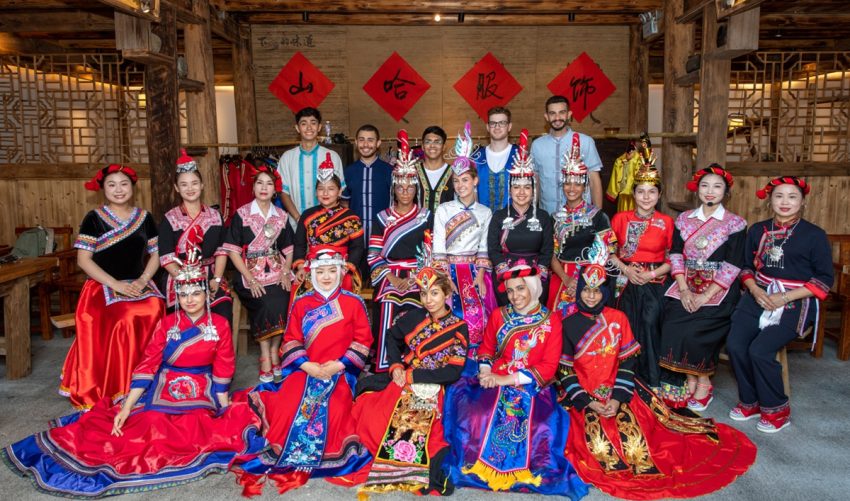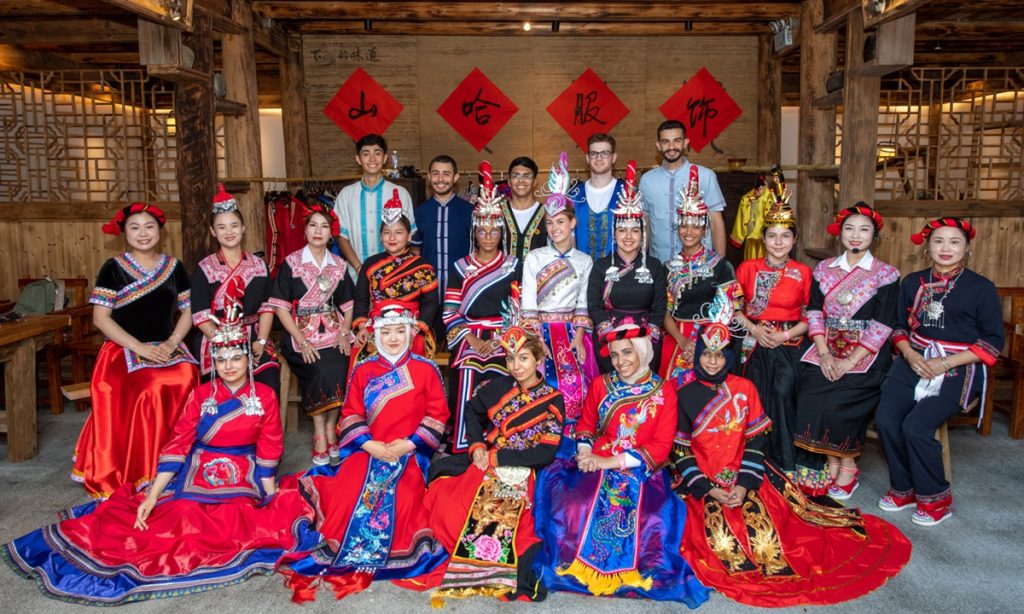
‘Chinese Bridge’ realizes dream for Egyptian girl

Having stood out for her language skills and deep understanding of Chinese culture, Yasmine Hamed from Egypt claimed the African Continental Championship of the 23rd "Chinese Bridge" Chinese Proficiency Competition for Foreign College Students and participated in the global finals of the competition that recently concluded in Pingtan, East China's Fujian Province.
A total of 147 participants and 122 observers from 133 countries and regions took part in the 2024 global finals of the competition. Benjamin Herman from University of Ghent in Belgium was crowned the winner.
Yasmine, 23, a graduate of Cairo University, told the Global Times on Wednesday that she dreamed of becoming a bridge between the ancient civilizations of China and Egypt, fostering cultural exchanges and mutual understanding.
"The most rewarding part of my journey of learning the Chinese language is that it opens doors for me and gives me chances to find out more about my potential. I didn't know that I could perform on stage and I have gained much self-confidence from such experiences," said Yasmine, whose Chinese name is Moli, which means Jasmine in China.
Olympics of Chinese proficiency
The "Chinese Bridge" competition, often referred to as the "Olympic Games of Chinese proficiency competition" for language learners, is an annual international event that promotes the Chinese language and culture among foreign students. Since its inception in 2002, the competition has attracted over 1.7 million participants from more than 160 countries and regions. It offers a platform for university and high school students to showcase their Chinese language skills while gaining cultural knowledge, according to the organizer Center for Language Education and Cooperation.
Chen Jie, vice Minister of Education and director of the National Language Commission said at the awards ceremony of the competition that this valuable platform has enabled international students to learn Chinese, immerse themselves in Chinese culture, and build bridges of friendship. Chen called on participants to continue their Chinese language journey and invited them to become ambassadors for China-home country relations, according to the Ministry of Education.
The competition involves multiple stages, starting with preliminary rounds in various countries. Winners advance to the semifinals and finals, typically held in China. The contest assesses participants' Chinese language proficiency, understanding of Chinese culture, and talents in various Chinese cultural activities, such as calligraphy, music, and more. Scholarships are often awarded to top contestants for further studies in China.
Hidden talents revealed
Reflecting on her language journey, Yasmine said that her connection with Chinese began in high school when she developed a strong interest in the meaning of Chinese characters. Though she only learned basic greetings like "Hello," "Thank you," and "What's your name," these simple phrases left a lasting impression, sparking her deep curiosity for the Chinese language and culture.
"I was curious about the pronunciation of pinyin. It sounds so different from Arabic and I decided to study Chinese and Arabic translation in university," she noted.
Learning Chinese revealed some hidden talents to Yasmine, such as performing Huangmei Opera and traditional Chinese comedic dialogue. In the global finals, she entertained the audience with a dazzling performance of Huangmei Opera.
"When I first watched the opera, I was surprised and found that I loved it so much. It opened a door for me to learn about Chinese culture as I studied the lyrics and imitated the movements. I was nervous on the stage, but learning Huangmei Opera made me more confident," she noted.
The 2024 competition marked the first time that the "Chinese Bridge" event partnered with Fujian Province. During the competition, participants visited various cities such as Nanping, Ningde, Quanzhou, Fuzhou, and Pingtan to gain a deeper understanding of the local history and cultural heritage of ethnic groups.
"We went to the tea fields in the Wuyi Mountain and learned a lot about the local ethnic group. It's amazing to know the different cultures of ethnic groups in Fujian," she said.
At the Quanzhou Maritime Museum, the participants explored the exhibit "Quanzhou: China's maritime trade center during the Song (960-1279) and Yuan (1279-1368) dynasties," which highlighted 22 heritage sites linking the city's history, ports, and hinterland. Quanzhou was added to the UNESCO World Heritage sites in 2021.
While looking for a job as a Chinese translator in Cairo, Yasmine said she is eyeing a master's degree in China in 2025.
"I want to be a Chinese teacher. I want to help Egyptians know the real China and Chinese culture and help Chinese people know the real Egypt and Egyptian culture. I'll continue my efforts in becoming an ambassador connecting China and Egypt," she said.


